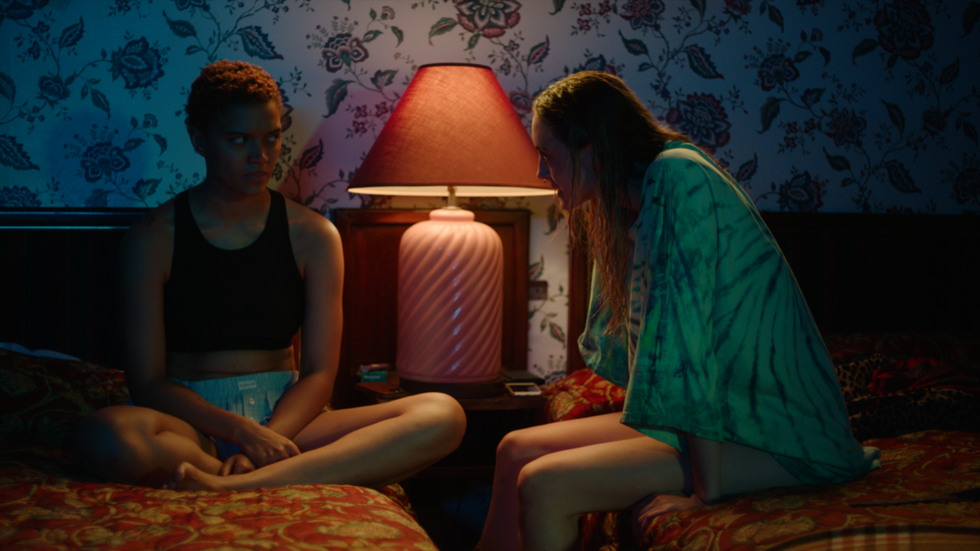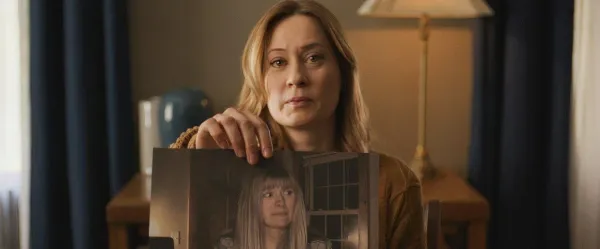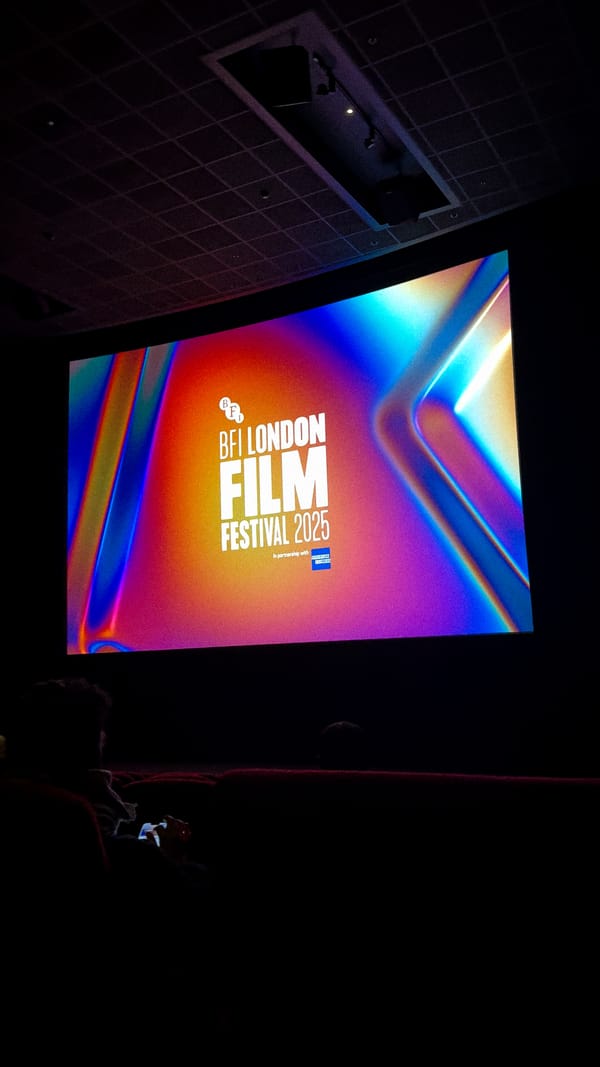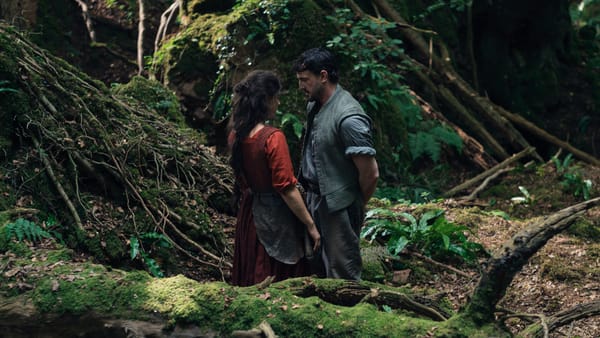Ride Or Die | OBSCURAE at TriBeCa
With Ride Or Die, Josalynn Smith transfuses grungy 90s dissatisfaction into the chassis of a beautifully shot modern feature, painted red, peeling to blue, then blossoming to a pale lilac.

I miss the 90s. Which is weird; I never lived it but I still miss it. Films do much the same, and do it all the time, recapturing the aesthetic and emotion of an era we can't get back to. So too does this ache in homage; Ride Or Die pitches itself as something of a young adult Love Lies Bleeding, but it particularly favors the flavors of a Gregg Araki road movie: The Living End, The Doom Generation, vibe-based and hoping for love in the face of nihilism.
When Paula (Briana Middleton) has a chance encounter with her high school crush Sloane (Stella Everett), sparks fly. Small disasters lead to disaffection and they decide to embark on a winding trip to Los Angeles, to leave their circumstances, but danger lurks in every corner. As their hidden traumas bubble up to the surface—and they start to realize they don't really know each other, at all—the two must reckon with just how far they'll go for love.
With Ride Or Die, Josalynn Smith transfuses grungy 90s dissatisfaction to the chassis of a beautifully shot modern feature painted red, peeling to blue, then blossoming to a pale lilac. The director deftly navigates the pull of attraction as she sprinkles it with unspoken revelations galore. It's a point of view I appreciate greatly: Smith prioritizes visuals in her storytelling, with a strong commitment to developing character through physicality, human and locational, which dialogue has become oh so accustomed to covering. An approach that's pretty part and parcel for road movies, a genre largely defined by white men on an open trek, but is here for these girls paved and obstructed by hierarchical roadblocks.
Paula is queer. Sloane is queer. They have a mutual attraction. But Paula is black and Sloane is white, and they are very much not on an equal foot in how they're treated by the world, what’s forgiven, the ways the former is taken advantage of, unconsciously, by the latter in her naivety. Throughout the journey, Smith takes pains to establish the consequences Paula is forced to shoulder for the promise of what Sloane represents to her: in microaggressions, in active aggressions, motel rooms that are full when Paula asks and open when Sloane white woman cries to the manager, or Paula’s clear discomfort when the car breaks down in what is implied to be a sundown town that Sloane doesn't really pick up on. Middleton gives a great performance, she adds an impressive subtlety to the gravity of being in love, and of being so angry with the person you're crushing on. Everett pushes on the other spectrum of this, the burnout caked in layers of trauma that she breaks things with a careless unintentionality. The two are electric, poking the power structures of the world merely by existing within it.
“You wouldn't like me if I was normal” says Sloane, in a pivotal exchange that gets to the heart of what Smith’s film is aiming for, and why its B-movie romantics resonate. Delusion and self destruction go hand in hand, and love is maybe the biggest, boldest delusion of them all. We make ourselves up to look better, to love better, and the film challenges why we can't be ourselves at every turn by invoking the reasons we perform for the world: to fit in, to not disrupt. Ride Or Die is a sleazy elegy of all the crushes that you've loved before, stylish and swaggy and ultimately brokering for empathy—whatever’s left of it—to manage another day.





